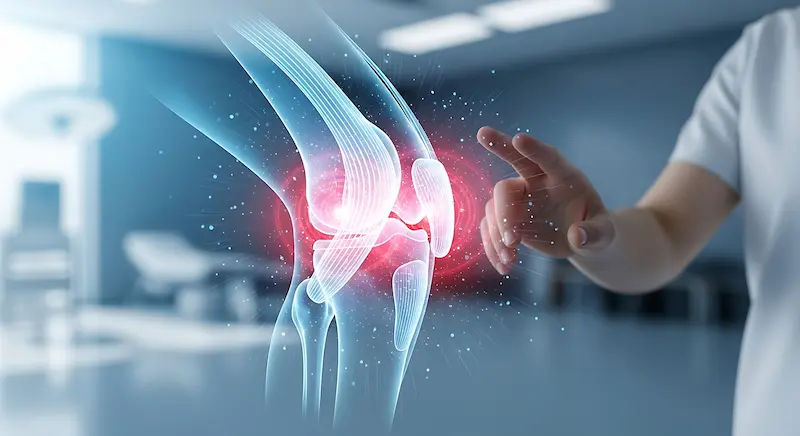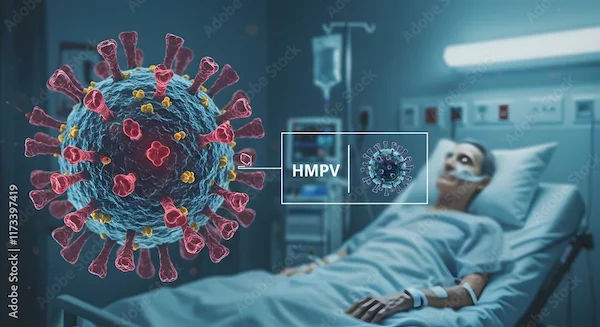Guide to Don't Ignore Muscular Pain
Learn why muscular pain shouldn’t be ignored and how to distinguish between normal soreness and serious issues. Get practical self-assessment tips and guidance for timely treatment.


Introduction
We’ve all been there. After a strenuous workout, an awkward movement in the garden, or even a long day at a poorly set-up desk, a familiar ache sets in. It’s easy to dismiss muscular pain as a normal part of life, something to be powered through with a painkiller and a stiff upper lip. However, this approach can be a critical mistake. While most muscle aches are harmless and temporary, sometimes that pain is your body’s most direct way of sending an SOS. This guide will help you understand the different types of muscular pain, why it’s crucial not to ignore persistent discomfort, and how to distinguish between common soreness and a sign of something more serious. Learning to listen to these signals can prevent minor issues from becoming chronic problems and protect your long-term health and mobility. We’ll walk you through a practical self-assessment and clarify when it’s time to seek professional help.
What is Muscular Pain? More Than Just an Ache
Muscular pain, or myalgia, refers to discomfort or inflammation in the soft tissues of the body that connect bones and support movement. It’s not a single sensation but a spectrum, ranging from a mild, dull throb to a sharp, debilitating stab. Understanding this spectrum is the first step in responding appropriately.
Differentiating Muscle Soreness from Injury Pain
This is the most critical distinction for anyone who is active.
- Normal Muscle Soreness: Delayed onset muscle soreness (DOMS) is the stiffness and ache you feel 24-72 hours after unaccustomed or intense exercise. It’s caused by microscopic tears in the muscle fibers, a natural part of building strength. DOMS is typically symmetrical (affects both sides equally), feels like a dull ache, and improves with light movement and time.
- Injury Pain: Pain from a strain or tear, on the other hand, is often sharp, sudden, and specific. It usually occurs during the activity itself. You might feel a pulling or tearing sensation. This pain is localised to one spot, can be accompanied by swelling or bruising, and worsens with movement or pressure. Ignoring this type of pain and "working through it" is a primary cause of more severe injuries.
Common Types of Muscular Pain: Acute vs. Chronic
- Acute Muscular Pain: This comes on suddenly and is usually short-lived. It’s often the result of a specific incident—like
a muscle strain from lifting a heavy box, a direct blow, or an overexertion during sports. It’s your body’s immediate alarm system. - Chronic Muscular Pain: This type of pain persists for weeks or even months. It can stem from an initial injury that never
healed properly or be linked to an underlying condition like fibromyalgia, arthritis, or postural issues. Chronic pain signals a deeper problem that requires investigation.
Consult a Specialist for the best advice
Key Reasons You Shouldn't Ignore Muscle Pain
Brushing off muscle pain might seem efficient in the short term, but it can lead to significant consequences. The mantra "don't ignore muscular pain" is rooted in two major risks.
The Risk of a Minor Injury Becoming Chronic
A minor muscle strain, if not given proper time to heal, can easily be re-injured. This cycle of re-injury leads to scar tissue formation, which is less flexible and more prone to pain than healthy muscle tissue. What started as a twinge in your shoulder can, over months, develop into a persistent, nagging pain that limits your range of motion and daily activities. This is a common pathway to chronic pain conditions that are far more difficult and time-consuming to treat.
Underlying Health Conditions Masquerading as Muscle Pain
Sometimes, what feels like a simple muscle ache is a symptom of a problem elsewhere. For example, pain in the left arm or jaw can be a sign of a heart attack. Pain in the lower right abdomen could be appendicitis. Unexplained widespread muscle pain can also be a symptom of systemic illnesses like influenza, Lyme disease, lupus, or autoimmune disorders. By dismissing the pain as a simple ache, you could be overlooking a critical need for medical intervention.
A Step-by-Step Self-Assessment of Your Muscle Pain
Before you decide to wait it out or see a doctor, take a moment to assess your pain systematically. This can provide valuable clarity.
Evaluating the Pain: Location, Type, and Duration
Ask yourself these questions:
- Location: Is the pain in one specific spot (suggesting a strain) or is it widespread (suggesting systemic issues or overuse)?
- Type: Is it a sharp, stabbing pain or a dull, constant ache? Does it burn or tingle (which might indicate nerve
involvement)? - Duration: How long has it been there? Has it been constant, or does it come and go? Has it gotten better, worse, or stayed the same?
Identifying "Red Flag" Symptoms That Demand Immediate Attention
Seek immediate medical attention if your muscle pain is accompanied by any of the following:
- Severe, debilitating pain that prevents any movement.
- Swelling, significant bruising, or redness around the painful area.
- Fever, dizziness, or difficulty breathing.
- Numbness, tingling, or weakness in the limb.
- Pain that follows a fall, injury, or accident.
- Signs of infection, like a warm, red, and swollen area.
Common Causes of Muscular Pain and When to Worry
Understanding the cause helps frame the appropriate response.
Exercise-Related Causes (DOMS, Strains)
As discussed, DOMS is normal. A sharp pain in muscle after lifting that occurs during the activity is likely a strain. Grade 1 strains (mild) heal with rest, but higher-grade tears need medical care.
Lifestyle and Postural Causes
Sitting for long periods with poor posture is a major culprit for neck and back pain. This often leads to a dull ache for weeks that seems to have no specific cause. Ergonomic adjustments and regular movement are key.
Medical Conditions Linked to Widespread Muscle Pain
Conditions like fibromyalgia cause widespread pain and tenderness. Autoimmune diseases like polymyalgia rheumatica cause stiffness and pain in the shoulders and hips. If you experience unexplained muscle pain all over your body, especially with fatigue, it's important to consult a doctor.
Practical Steps for Managing Minor Muscular Pain at Home
For common aches and pains without red flags, the R.I.C.E. method is a proven first-aid approach:
- Rest: Avoid activities that cause pain.
- Ice: Apply an ice pack for 15-20 minutes every 2-3 hours for the first 48 hours to reduce inflammation.
- Compression: Gently wrap the area with an elastic bandage.
- Elevation: Raise the injured area above heart level if possible.
After 48 hours, gentle heat and light stretching can promote blood flow and healing.
When to See a Doctor: Making the Right Call
You should schedule a doctor's appointment if:
- The pain is severe and doesn't improve after a week of self-care.
- The pain is chronic, interfering with your sleep or daily life.
- You notice increasing weakness or numbness.
- The pain is accompanied by other unexplained symptoms.
If your condition does not improve after trying these methods, book a physical visit to a doctor with Apollo24|7 for further evaluation. They can provide an accurate diagnosis and refer you to a specialist if needed, such as a physiotherapist.
Conclusion: Listen to Your Body, It's Often Right
Muscular pain is a universal experience, but it should never be universally ignored. By learning to interpret the specific language of your body’s discomfort—its location, quality, and duration—you empower yourself to make smart decisions about your health. Treating minor aches with respect and knowing when to seek help for more serious pain are essential skills for maintaining an active, pain-free life. Remember, your body’s warning system is sophisticated; the key is to become fluent in its signals. If symptoms persist beyond two weeks, consult a doctor online with Apollo24|7 for a convenient initial consultation to determine your next steps.
Consult a Specialist for the best advice
Consult a Specialist for the best advice

Dr. Sitaram V. Chowti
General Physician/ Internal Medicine Specialist
40 Years • MBBS, MD
Bengaluru
Apollo Hospitals Jayanagar, Bengaluru
(125+ Patients)

Dr. Jawwad Mohammed Kaleem
General Practitioner
4 Years • MBBS
Hyderabad
Apollo 24|7 Clinic, Hyderabad

Dr. Mohammed Kamran
General Practitioner
5 Years • MBBS, FIDM
Nashik
Apollo 24|7 Clinic - Maharashtra, Nashik

Dr. Vasanthasree Nair
General Practitioner
15 Years • MBBS
Angamaly
Apollo 24|7 Clinic - Kerala, Angamaly
(500+ Patients)

Dr. Rajib Ghose
General Physician/ Internal Medicine Specialist
25 Years • MBBS
East Midnapore
VIVEKANANDA SEBA SADAN, East Midnapore
Consult a Specialist for the best advice

Dr. Sitaram V. Chowti
General Physician/ Internal Medicine Specialist
40 Years • MBBS, MD
Bengaluru
Apollo Hospitals Jayanagar, Bengaluru
(125+ Patients)

Dr. Jawwad Mohammed Kaleem
General Practitioner
4 Years • MBBS
Hyderabad
Apollo 24|7 Clinic, Hyderabad

Dr. Mohammed Kamran
General Practitioner
5 Years • MBBS, FIDM
Nashik
Apollo 24|7 Clinic - Maharashtra, Nashik

Dr. Vasanthasree Nair
General Practitioner
15 Years • MBBS
Angamaly
Apollo 24|7 Clinic - Kerala, Angamaly
(500+ Patients)

Dr. Rajib Ghose
General Physician/ Internal Medicine Specialist
25 Years • MBBS
East Midnapore
VIVEKANANDA SEBA SADAN, East Midnapore
More articles from General Medical Consultation
Frequently Asked Questions
1. What is the difference between muscle pain and nerve pain?
Muscle pain is often described as a deep, aching, or throbbing sensation, while nerve pain (neuropathy) typically feels like a burning, shooting, stabbing, or 'pins and needles' sensation. Nerve pain may also be associated with numbness or weakness.
2. How long should I wait before seeing a doctor for muscle pain?
As a general rule, if severe pain doesn't start to improve within 3-5 days with rest, or if mild to moderate pain persists for more than two weeks, it's time to see a doctor. However, always seek immediate care for 'red flag' symptoms.
3. Can dehydration cause muscle pain?
Yes, absolutely. Dehydration can lead to electrolyte imbalances and muscle cramping, which is a form of acute pain. Ensuring adequate hydration is a simple first step in addressing and preventing muscle discomfort.
4. When is back muscle pain a sign of something serious?
Seek immediate help for back pain if it's accompanied by loss of bladder or bowel control, numbness in the groin area, high fever, or follows a major trauma like a car accident. These can indicate serious nerve or spinal damage.
5. Are there any tests for unexplained muscle pain?
Yes, a doctor may order tests like blood tests (to check for inflammation, infection, or vitamin deficiencies), imaging studies like an MRI or ultrasound to view soft tissues, or specific tests for autoimmune conditions. Apollo24|7 offers convenient home collection for tests like vitamin D or CPK (creatine phosphokinase), which can be relevant in assessing muscle health.




